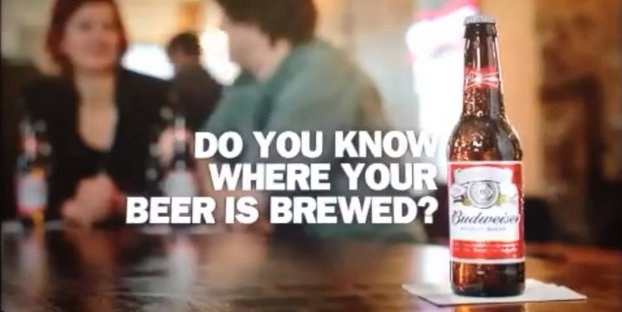IGTV was launched this summer by Instagram as its longer video-friendly variant where any creator can post their creations. It’s already gotten the attention of Anheuser-Busch InBev. The company is looking to promote its craft brands through a social media campaign via the “long-form vertical video” app using a new set of videos it will release. The Brewers on Tap series entails maybe three mini movies (only one released so far) hosted by Christina Perozzi — cofounder of The Beer Chicks, overall beer expert, Certified Cicerone, educator at Goose Island, co-author of The Naked Pint, etc., etc.
Perozzi talks with Jaron Mitchell of 4 Pines Brewing Co. (Australia), Mark Burford of Blue Point Brewery (New York state) and Jasper Cuppaidge of Camden Town Brewery (London). It’s interesting to note the international diversity of the video and makes you wonder when we’ll see those international brands in the United States. Oh wait: 4 Pines Brewing is distributed in California and Florida and contract brewed in the United States by Sleeping Giant Brewing Co. in Denver.
Early on in the video above, Perozzi asks: “What do you think craft beer is now? Do we even want to use the word?”
“I think the term will be gone in a couple of years’ time,” answers Mitchell. “Probably long before our time there was another term. Probably used to be called lizard beer.”
Lizard beer? Mitchell actually says “illicit” beer, according to an ABI PR rep that contacted us, which makes way more sense. But why even bring up the term craft beer? It feels heavy-handed and ultimately a losing argument for those who care about craft beer. You wish they’d just stick to celebrating their craft brands’ histories and unique cultures and products. Marketing firm Barbarian created the videos, and they will go beyond IGTV, noting Instagram alone is now a global community of one billion. According to Food Dive:
Leo Leone, executive creative director at marketing firm Barbarian, said the campaign aims to address skepticism toward ABI’s role in the craft brewing industry. The narrative consists of more than 20 social deliverables on Facebook, Instagram, IGTV, LinkedIn and YouTube, per the statement.
The interviewees go on to talk about how they have more resources, their beer is better quality, how lagers are difficult to brew and how if you’re talking too much about the ingredients, well, you’re probably not really enjoying that beer. It’s all very subtle.





Mike Nelson says
Dear ABinbev you fuck up every beer you buy out and turn into Budweiser pis. I for one will stick with the actual small craft breweries. Including my own homebrew.
Rick Boyd says
I don’t think he’s wrong. When the larger craft brewers are using the same technology and ingredients as the big boys then the only thing separating them is volume. There most certainly are true craftsmen in this industry and some of them are working for AB-Inbev.
Its become a term that’s thrown around but its hollow at this point. I can’t really think of another industry that segments itself this way.
Craft Brewing Business says
I guess I wouldn’t say they are wrong, but it all smacks of a blatant attempt to minimize the advances the small brewer has made in this monopolized industry to tout their own virtues….. and I can certainly understand eye-rolling at the “craft beer” definition and feeling its lost its meaning (definitely might be true), but you’d also be hard pressed to find another industry with the small business success rate of the craft beer industry, especially in a retail space. I’d argue the segmentation has mattered in some way in making that possible. So much so, that a giant corporation spent a lot of time and effort to film this movie (and other marketing efforts) to counter it.
Rick Boyd says
Craft Brewing Business all great points. I completely agree that there was enough perceived value that the big boys first tried to destroy the club and now want to considered part of it. Tremendous praise is owed to the Brewers Association and their long term leadership on marketing and branding.
That all being said there’s simply not a good definition of what a craft brewer is. If you base it on volume then the most successful and long standing breweries will be left out. If you do it by quality then that’s a subjective standard and one that should include some of the big boys and not some of the smaller breweries with bad beer.
I think a suitable compromise is a new term, Independent Craft Brewer